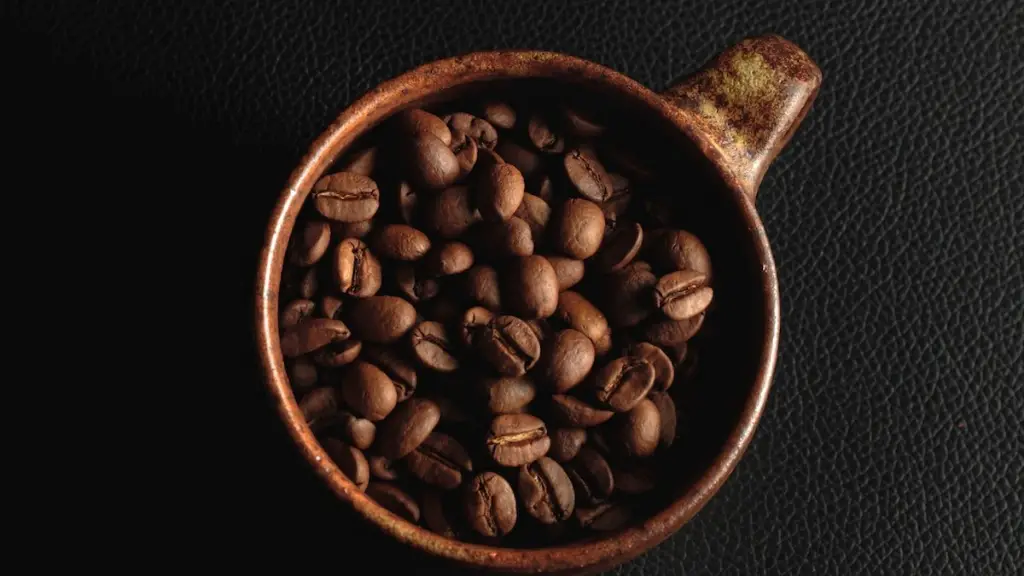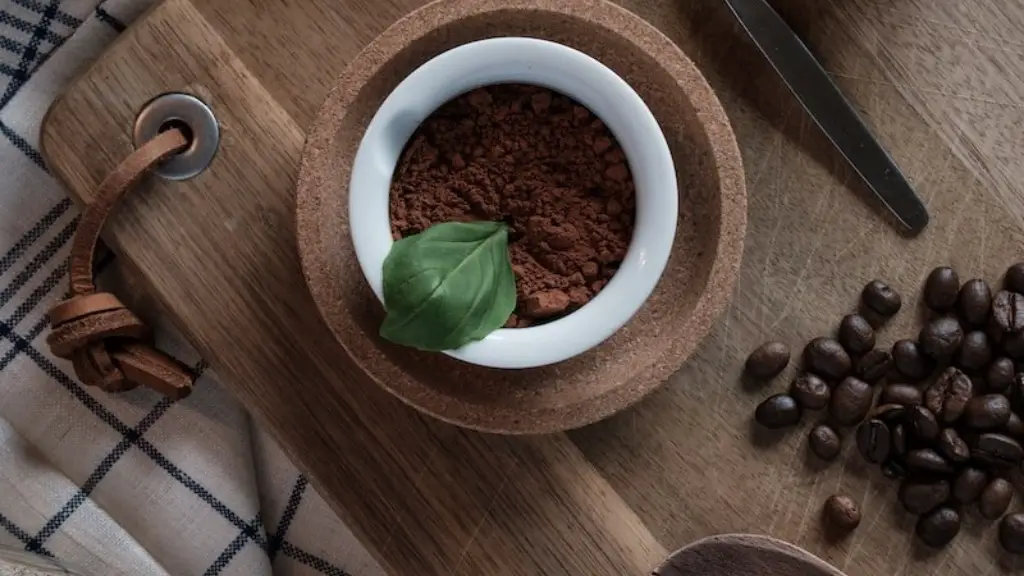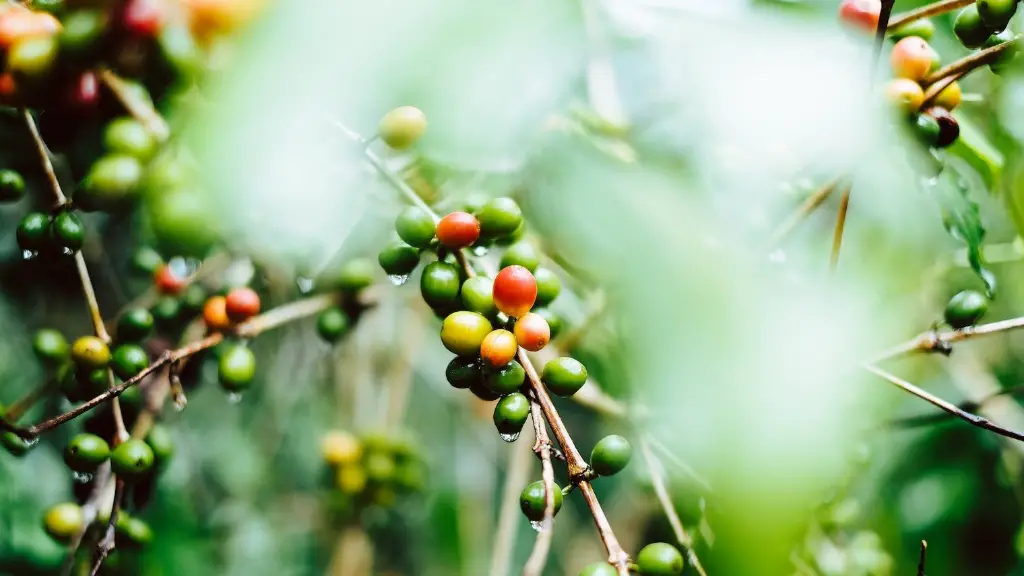Caffeine and Carcinogens
At the question, “Does Starbucks coffee give you cancer?” the answer is not as straightforward as one might expect. The question of the safety of Starbucks coffee is a multi-faceted one, as it includes not only the topic of cancer, but also the effects of caffeine and the presence of trace amounts of carcinogens in any given cup of Starbucks coffee.
Caffeine is known to be a mild stimulant, leading to increased alertness and an initial sense of energy. Caffeine is found in a range of products, and it can be addictive. A large cup of Starbucks coffee contains 320 mg of caffeine which is plenty to increase alertness, but it is not considered to be enough to cause harm in adults.
As far as cancer risk is concerned, many studies have been conducted in an effort to better understand the relationship between coffee and cancer. A meta-analysis of 170 studies looked at the effect of coffee intake on cancer. The researchers found no association between drinking regular or decaffeinated coffee and cancers of the bladder, pancreas, lung, or throat. Other studies have found a connection between coffee drinking and ovarian cancer and kidney cancer, but the relationship is small and inconclusive.
When it comes to the presence of carcinogens in Starbucks coffee, it is important to note that most carcinogens are found in the water used to make coffee, rather than the beans themselves. Additionally, no studies have been conducted to determine the level of carcinogen exposure when drinking Starbucks coffee. That said, some experts believe that the amount of carcinogens in coffee is unlikely to cause any health issues.
In conclusion, Starbucks coffee is unlikely to be a major contributor to cancer risk. While there is evidence to suggest that drinking large amounts of coffee could be linked to an increased risk of cancer, this connection is far from conclusive. The presence of carcinogens in the water used to make Starbucks coffee is also unlikely to pose any threats to health, as long as the water is of a safe drinking standard. Thus, it is safe to conclude that Starbucks coffee does not give you cancer.
Not Just About Cancer
When it comes to coffee, the discussion is not just limited to the topic of cancer. Coffee has been linked to other health benefits, some of which have been studied more extensively than the potential links to cancer. For example, coffee consumption has been linked to a reduced risk of Type 2 diabetes, stroke, heart attack and even Parkinson’s disease. Additionally, coffee consumption is associated with improved cognitive function and alertness, as well as a reduced risk of depression and other mental health disorders.
Coffee contains a number of antioxidants and other beneficial compounds, such as caffeine, that may have a protective effect against some diseases. For example, regular coffee consumption has been linked to a reduced risk of developing Alzheimer’s disease and other forms of dementia, though the mechanism for this benefit is not yet clear. Additionally, coffee can provide some protection against type 2 diabetes and some forms of cancer.
Coffee also contains a variety of trace vitamins and minerals that may also have some beneficial health effects. For example, one study found that drinking coffee is associated with an increase in the production of helpful bacteria in the gut, which could have a positive impact on overall health. Coffee is also high in magnesium, which is important for healthy bones and muscles, as well as calcium, which can help to keep our bones strong.
Overall, coffee can be beneficial in moderation, as it provides numerous health benefits and may even reduce the risk of certain diseases. While it is best to be mindful of one’s caffeine intake, drinking Starbucks coffee or any other type of coffee in moderation can be beneficial for health.
The Contest of the Global Coffee Market
The global coffee industry is highly competitive and is worth billions of dollars. The major players in this market are Starbucks, Nestle, J.M. Smucker and Kraft Heinz. The competition in this market has driven up prices and increased demand for quality beans, especially in North America, Europe and Asia.
In the U.S. alone, Starbucks is the largest coffee chain, with over 400 locations and 28,000 employees. Starbucks dominates the market with its premium blends, pricier beverages and larger portion sizes than most other coffee chains. Nestle, J.M. Smucker and Kraft Heinz have also seen growth in recent years due to the rise of premium coffees and teas.
In addition to the competition among coffee chains, there is also competition between coffee producers, such as those in Ethiopia, Brazil, Colombia and Vietnam. Many of these countries rely on sales of coffee beans to support their local economies, so the competition to produce the best beans is fierce.
This competition for the global coffee market can have an effect on the quality and safety of the beans. Low-grade beans may be picked too early or may not be grown in an optimal environment for safety and quality, leading to beans that are not up to par. It is important to be aware of the source of your beans to ensure that they meet the highest standards of safety and quality.
Fair Trade Standards and Their Impact
When it comes to the safety and quality of coffee, it is important to consider the fair trade standards that are in place. These standards ensure that farmers in coffee producing countries are provided with fair wages and safe working conditions. Starbucks is one of the companies that has adopted fair trade standards, and it has been recognized for its commitment to these standards.
The fair trade standards are important not only for the safety of the workers in coffee producing countries, but also for the quality of the beans. These standards provide farmers with the resources they need to adhere to certain practices that ensure they produce the highest quality beans. This, in turn, ensures that the beans used to make Starbucks coffee are of the highest safety and quality.
The fair trade certification process also ensures that the farmers in coffee producing countries receive fair compensation for their work. This helps to ensure that coffee farmers are able to support themselves in their communities, as well as providing them with the resources they need to continue producing high-quality beans.
Environmental Sustainability
In addition to providing fair wages and working conditions to farmers in coffee producing countries, Starbucks is also committed to environmental sustainability. This includes efforts to reduce its environmental footprint through the use of sustainable farming methods, energy-efficient production systems and greener packaging.
Starbucks is also a leader in the use of sustainable coffee farming techniques such as agroforestry and permaculture. These techniques help to reduce soil erosion, improve soil fertility and increase biodiversity. Additionally, Starbucks’ efforts to use renewable energy sources for its production processes help to reduce its overall carbon footprint.
Starbucks has also implemented infrastructure projects that help to ensure the safety and quality of their coffee. These include water treatment and filtration systems, waste management systems and improved sanitation practices. These initiatives help to reduce the amount of pollutants entering the environment, as well as ameliorate their effects on wildlife and people.
By investing in sustainable farming practices and infrastructure projects, Starbucks is helping to ensure the safety and quality of its beans, as well as minimize its environmental impact. These efforts have made Starbucks one of the leading companies in the global coffee market in terms of sustainability and safety.
Final Thoughts
At the question, “Does Starbucks coffee give you cancer?” the answer is, in all likelihood, no. While there are a number of factors that can influence the safety of Starbucks coffee, from the caffeine content to the trace amounts of carcinogens in any given cup, these factors are unlikely to be influential enough to contribute significantly to cancer risk. Additionally, studies have not shown any conclusive evidence that drinking Starbucks coffee increases cancer risk.
Moreover, there are a number of health benefits associated with drinking coffee in moderation, such as improved cognitive function and alertness, protection against some diseases and the presence of trace vitamins and minerals. Additionally, Starbucks is committed to providing fair compensation to coffee farmers and reducing its environmental impact through the implementation of sustainable farming methods and infrastructure projects.
Overall, drinking Starbucks coffee in moderation is unlikely to increase the risk of cancer, as well as provide numerous health and environmental benefits. By being mindful of the potential risks and taking measures to ensure the safety and quality of the beans, Starbucks coffee can be enjoyed with confidence.





